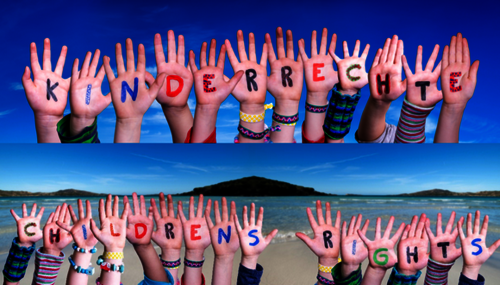- Intro
-
Focus
- Non-discrimination
- Best interests of the child
- Right to life
- Respect for the views of the child
- Evolving capacities
- Civil rights and freedoms
- Violence against children
- Family environment and alternative care
- Children with disabilities
- Health and welfare
- Education, leisure and cultural activities
- Special Protection
- Background
- Project


![(c) Nelosa/Shutterstock.com
[Translate to Englisch:] Ansicht: 35 Jahre Kinderrechte](/fileadmin/kinderrechte.digital/Artikelbilder/8817_orig_8817.png)
![keine Hinweisw
[Translate to Englisch:] Ansicht: Aufruf zur Beteiligung: Wirkungen der Allgemeinen Bemerkung Nr. 25](/fileadmin/kinderrechte.digital/Artikelbilder/9456_orig_9456.png)
![(C) United Nations
[Translate to Englisch:] Ansicht: Deutschland: Sonderberichterstatterin fordert landesweit einheitlichen Ansatz zum Schutz von Kindern](/fileadmin/kinderrechte.digital/Artikelbilder/9434_orig_9434.jpg)
![Foto: Kathrin Morasch
[Translate to Englisch:] 15. IGF Deutschland, Torsten Krause und Jutta Croll](/fileadmin/kinderrechte.digital/Artikelbilder/9442_orig_9442.jpg)
![(C) INHOPE/ReportCSAM
[Translate to Englisch:] Ansicht: Meldeportal für sexuelle Gewalt online](/fileadmin/kinderrechte.digital/Artikelbilder/9431_orig_9431.jpg)
![AMEDY_Pixabay_1280536_1280_Digitale_Geraete_c_Lizenzfrei
[Translate to Englisch:] Ansicht: Umfrage zum Datenschutz von Kindern](/fileadmin/kinderrechte.digital/Artikelbilder/9426_orig_9426.jpg)
![(c) hunton.com
[Translate to Englisch:] Multistakeholder-Dialog zur Altersfeststellung](/fileadmin/kinderrechte.digital/Artikelbilder/9421_orig_9421.jpg)
![[Translate to Englisch:]
[Translate to Englisch:]](/fileadmin/user_upload/John_Carr_2.jpg)
![(c) Anja Riese
[Translate to Englisch:] Visualisierung von Anja Riese](/fileadmin/kinderrechte.digital/Artikelbilder/9415_orig_9415.jpg)